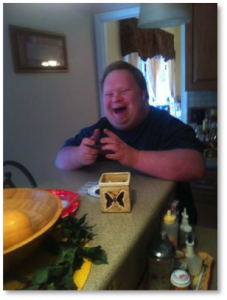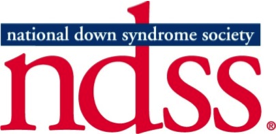What Should Everyone Know About Abuse?
By Nora J. Baladerian, Ph.D.
As I thought about writing this blog, I wondered, “what do I wish that everyone could know about abuse?” My first thought was I would want everyone who is a person with intellectual or developmental disabilities (IDD) or their loved one, to know that abuse can happen to anyone… everyone. Having a disability is not a protection. Many parents and teachers have told me, “well, no one would abuse my child/the children I teach… because they have disabilities.” Their belief blinds them to the reality that abuse not only does happen to kids and adults with disabilities, but in fact it happens more to people with than without disabilities.
The most recent surveys confirm this. In February 2014, the National Crime Victim Survey noted that among those between ages 12-15, those with disabilities were victimized three times more than their non-disabled peers. The 2012 National Survey on Abuse and Disability (7,289 responses) found that 70% respondents with disabilities reported abuse in their lifetimes. And, of these, 90% said that it happened multiple times, and 46% said it happened too many times to count.
Of course it is important to study the problem of abuse to know the extent of the problem. Then it is time to take the next step: Help the survivors, and make efforts to reduce the risk of abuse. This means, make plans to reduce the risk that abuse will happen to each child and adult with a disability. It also means to make sure that each crime victim receives the psychological support they will need. Finally, it means that the criminal justice system should be available to individuals with disabilities… which it is not now.
The 2012 National Survey showed that nearly half of crime victims did not report the abuse, and of these most did not report, believing that their report would not result in any legal action against the perpetrator. Those who reported the crimes, 54% found that their reports did not result in any legal action. This shows that the fears of those not reporting were well-founded. And, this points us in a direction for reform. What can be done to ensure equal justice is available for crime victims with disabilities?
I believe these findings give us the information needed to design a plan of action. A written plan of action has been in place at least since 1997, when the California Think Tank on Abuse and Disability convened in Los Angeles, CA and created a plan for the state. Perhaps now, these ideas can become reality. The most essential pieces of the plan include:
- Give every parent/careprovider/conservator a copy of the “Ten Tips on Abuse & Disability” to learn that abuse does happen, and the steps to take if it does. If parents and careproviders do not believe it happens or can happen, they will not protect their children nor be aware of what they should do and say when abuse is revealed to them. Parents are taught many things, but this essential area is ignored. ENOUGH! Every physician, psychologist (or other mental health practitioners), disability services agency, school, etc. should make sure that parents are aware and ready to protect their child. By simply handing them the “Ten Tips,” a one page guide, the parents’ have been given their first step: awareness, information, and resources.
- Every agency/organization providing services to crime victims and/or people with disabilities should receive an annual one-day training on abuse issues: incidence and prevalence, perpetrator information, risk-reduction strategies and support for survivors.
- Every law enforcement professional (patrol, detective, investigator, captain; prosecutor, judge, etc.) should receive at least one day of training each year on the aspects of interacting with individuals with disabilities, conducting a thorough investigation, knowledge on specialized interviewing skills, and in particular familiarization with the daily life of individuals with disabilities and the programs/ individuals who serve them. Budgets for training have always been identified as a barrier, but another is the interest level and commitment of those in charge of training. We have to continue to knock at the doors of agencies, until such training is a standard part of their training package.
- Every medical professional working with people with disabilities (that’s all of them, I think!) and mental health professional should be required to have at least one day training on working effectively with people with disabilities, with a particular awareness of the role abuse plays in their lives. Specialized therapies for crime victims with disabilities should be a part of the training of all trauma specialists and crisis and disaster responders.
- Most importantly, all individuals with disabilities should be provided information about abuse, maltreatment and assault. They should be able to understand what it is. They should have a plan designed for them or with them by their parents/carers, so they know what is happening if an assault happens, what to do before, during and after. The parents and carers should also receive education, information and training on what they should do before and after their loved one experiences violence.
I believe that it is my duty, and that of others, to do what we can within our scope of work and life, to ensure the well being of individuals with disabilities. I don’t know why I believe that, exactly, but it has turned out that that is my life’s work. I do not say that should be everyone’s work!!! But, I think that within each of our job duties, there is something we can do to be a part of the solution.
The Arc of the US, and the Disability and Abuse Project, among others, have committed to develop resources that are easily accessible. Visiting their sites monthly would be a good idea to stay up to date on availability of resources.
References:
U. S. Department of Justice, Office of Justice Programs, Bureau of Justice Statistics, (2012) NCJ240299 Crimes Against Persons with Disabilities,2009-2012. Statistics Tables. Retrieved on 2/26/14 from https://www.bjs.gov/index.cfm?ty=pbdetail&iid=4884
Baladerian, N., Coleman, T., Stream, J., (2013) Abuse of People with Disabilities Victims and Their Families Speak Out: A Report on the 2012 National Survey on Abuse of People with Disabilities, retrieved on 4/1/14 from https://www.disabilityandabuse.org/survey
Baladerian, N., (2014) from A Risk Reduction Workbook for Parents and Service Providers, Spectrum Institute. Retrieved on 4/4/14 from https://www.disabilityandabuse.org/resources/ten-point-guide-to-abuse-response.pdf
Dr. Nora Baladerian is the Director of the Disability, Abuse and Personal Rights Project in Los Angeles, CA; she has worked in the area of abuse of people with disabilities since 1972. She is a former Board Member of the National Committee to Prevent Elder Abuse and Advisory Board Member of the American Bar Association’s Council on Victims. Dr. Baladerian is a Licensed Clinical Psychologist, Licensed Marriage and Family Therapist, Certified Sex Therapist and Board Certified Crisis Responder. She is the Project Coordinator for the Disability and Abuse Project of Spectrum Institute, and from 2000-2006 the Director of the CAN Do! Project, Child Abuse & Neglect Disability Outreach at Arc Riverside.











